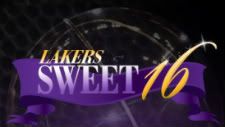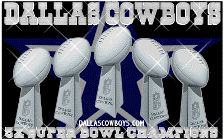We use words like honor, code, loyalty. We use these words as the backbone of a life spent defending something. You use them as a punchline.
 Yesterday I had the privilege to meet with Dr. Paige Patterson, president of Southwestern Baptist Theological Seminary.
Yesterday I had the privilege to meet with Dr. Paige Patterson, president of Southwestern Baptist Theological Seminary.I had remarked before (He's a good man ... and thorough) about being impressed in a meeting where he addressed us homiletics professors at SWBTS, but this was a nice one-on-one chat.
I was impressed by his pastoral nature, expressed in warmth and concern for me and my family, seeming to be genuinely interested.
 I enjoyed the conversation on a intellectual level, but also a personal level, including hearing some firsthand reflections on Dr. W.A. Criswell, pastor of First Baptist Dallas for over 40 years.
I enjoyed the conversation on a intellectual level, but also a personal level, including hearing some firsthand reflections on Dr. W.A. Criswell, pastor of First Baptist Dallas for over 40 years.I was also impressed by his knowledge of classical rhetoric as we discussed my dissertation area, but I won't bore you with the details of Aristotelian persuasion or Cicero's "Canons" of Rhetoric.
We discussed a bit about the presence of both the Reformed & Revivalist (or Calvinistic & Arminian) in the SBC and the benefits of one to the other. He made an observation that I'd never really thought of with regard to what happened with the Baptists in England. They split as Particular & General Baptists, where the Particulars eventually succumbed to hyper-calvinism and the Generals eventually succumbed to universalism and then Unitarianism.
In other words, the tension in the SBC helps keep both groups in check. It may be an overstatement, but the one helps the other with a focus on doctrine while the other helps the other with a focus on doing evangelism.
Dr. Patterson would not consider himself a Calvinist (however, not necessarily wearing the label of Arminian either), but his goal is not the eradication of Calvinists from the SBC, any more than the goal of the more Reformed being to eliminate the Arminians.
Incidentally, if you're not familiar with the 2006 dialogue that Dr. Patterson had with Dr. Mohler (president of Southern Baptist Theological Seminary), I heartily recommend it (listen or order audio).
 In it Dr. Mohler warned against a concern with regard to Calvinism. I agree.
In it Dr. Mohler warned against a concern with regard to Calvinism. I agree. “There is a tendency toward a debating personality or a confrontation on these different points of theology. It’s healthy to study God’s word to find out what the gospel is. It is not healthy when a person would drive across the state to debate Calvinism, but won’t drive across the street to share the gospel.”While a contentious spirit is arrogant and ugly, anytime you have those with widely divergent theological views (particularly with regard to soteriology) discuss the topic in a warm and honest manner, everybody wins. Such is rare in discussions of Calvinism & Arminianism, but these two friends demonstrate and represent a health approach of Southern Baptists to discussion our theological differences in a manner of love and respect, for each other, for the Bible, and for the Lord Jesus.
I said all that to say this, I am grateful for the time I got to spend with a man whom Southern Baptists should appreciate for the vital role Dr. Patterson played in restoring to the SBC the inerrancy of Scripture. I am grateful that, while president of the SBC, Dr. Patterson initiated the the revision process of the Baptist Faith and Message (2000), which, among other things, strengthened the role of the Bible in our lives. There is still work to do, however, in living under the inerrant Scripture, not just affirming it (i.e,. Sola Scriptura).
The more liberal/moderate in the SBC would lament the conservative resurgence, often even mocking the defense of inerrancy of Scripture. The words we might use to describe that which we value, others might use as a punchline. We need to be grateful for men like Drs. Criswell, Mohler, and Patterson, men passionate in their love for Christ which drives their actions. We also need to pray as we have great need for more men like them in the SBC in the future.
P.S. I've just learned that Dr. Patterson has garnered vast criticism for his comments in chapel (4/18) at SWBTS regarding the VT shootings.
"My own perspective is that Christians – who believe that heaven is their real home and that they are prepared for eternity as result of a life changed by Christ – are even more obligated to act courageously and sacrificially. And I am still just old-fashioned enough to believe that men are responsible to protect women and children."Who could have a problem with that?! I put that in the category of, "Be a man."
I remember when my dad was stationed at Fort Hood back in the day some goon starting shooting up the Luby's in nearby Killeen. We didn't have the option available to us in Texas to carry a concealed weapon and I know of at least one who had one in the car that day who would have been able to handle up, for the gunman had to reload before he shot her parents.
Isn't that courage? Isn't that heroism?
Isn't that what happened on United flight #93 on 9/11? Remember ... "Let's roll!"
Sure, nobody thinks such will happen, but Dr. Patterson calling on seminary students to be willing to lay down their lives for others .... how can that be wrong? (cf. John 15:13)

































